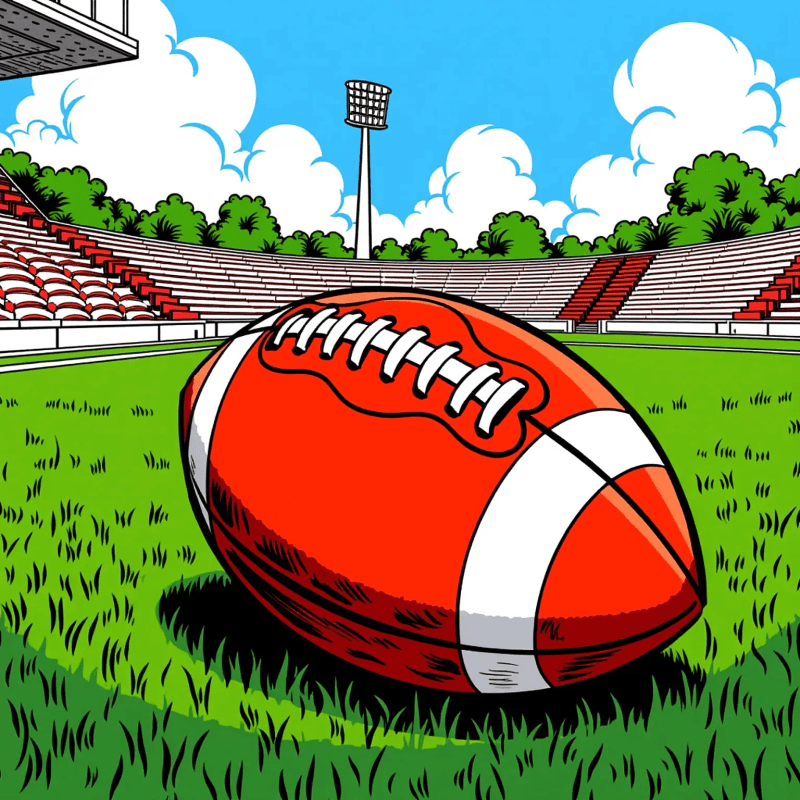Flag football has seen an incredible rise in popularity over the past few years. What once was seen as a casual backyard game has grown into a respected sport played at all levels, from kids to adults. The appeal lies in its fast-paced nature and the fact that it’s a version of football that’s accessible to everyone, regardless of athletic ability.
One of the key factors contributing to the growth of flag football is its emphasis on teamwork and strategy. Players can focus on honing their skills without the physical contact found in traditional tackle football. This more inclusive approach allows players to enjoy the game while minimizing the risk of injuries, making it appealing to schools and community teams.
With organizations like the NFL investing time and resources into promoting flag football, it's gaining traction in youth programs, schools, and even at the professional level. Tournaments and leagues are popping up across the country, showcasing talent and building a community around the sport. These factors play a huge role in its potential recognition by the Olympics.
As flag football gains momentum, many enthusiasts are advocating for its inclusion in the Olympic Games. The 2028 Olympics in Los Angeles presents a perfect opportunity for this sport to shine on an international stage. With its growing fanbase and enthusiastic support, flag football is ready to take the leap from local fields to Olympic glory.
- Key Rules and Gameplay Explained
Flag football might seem simple at first glance, but there are some key rules and gameplay aspects that make it both exciting and strategic. The main objective is to score points by getting the ball into the opposing team's end zone while avoiding being tagged by defenders. Here’s a quick rundown of how the game unfolds:
Understanding these basic rules can really enhance your enjoyment of the game. Plus, knowing what to expect can help you appreciate the strategy and teamwork that goes into each play. Whether you’re playing or just watching, getting the hang of these gameplay elements makes every match thrilling!
- Benefits of Flag Football for All
Flag football is more than just a fun game; it brings a lot of great benefits for everyone involved, regardless of age or skill level. One of the most appealing aspects is how inclusive it is. You don’t need to be a seasoned athlete to join in. It’s all about teamwork, strategy, and having a good time on the field.
Another big plus is that flag football promotes physical fitness in a way that feels natural and enjoyable. Running around, throwing passes, and dodging opponents keep you active without the grueling routines of traditional workouts. Plus, since it's non-contact, you can play with less fear of injury, making it a great option for those newer to sports.
On top of that, flag football helps build valuable social connections. Whether you’re joining a local league or playing with friends, you’ll meet new people and strengthen existing friendships. The camaraderie developed on the field often translates to support off the field, creating a sense of community among players.
Lastly, this sport is an excellent way to develop leadership and teamwork skills. Everyone has a role to play, whether you’re calling plays or encouraging your teammates. These skills can carry over into everyday life, helping you feel more confident and connected in various situations.
- What the Future Holds for Flag Football
Flag football is on an exciting path, especially with its inclusion in the 2028 Olympics. This change not only shines a spotlight on the sport but also opens up several new opportunities for players and fans alike.
As more countries embrace flag football, we can expect to see a surge in youth participation programs worldwide. This means more kids getting off their couches and onto the field, learning teamwork, and developing their skills from an early age. The Olympic stage will inspire the next generation of athletes, and it’s thrilling to think about the talent that might emerge in the years to come.
We might also see an expansion in flag football leagues, tournaments, and even college programs. With the Olympics drawing attention, sponsors will likely jump on board, bringing in necessary funding and resources. This boom could lead to better coaching, facilities, and equipment, raising the overall level of play.
Moreover, as flag football gains traction, it could lead to greater inclusivity in sports. More women, children, and diverse groups may find a welcoming environment in flag football, promoting a sense of community. It’s a sport that anyone can play, regardless of background or prior experience.
In the coming years, we might even see advancements in training technology and methods tailored specifically for flag football. Virtual training apps or wearables could help players analyze their performance and improve their game. With all these changes on the horizon, it's clear that flag football has a bright future ahead.

